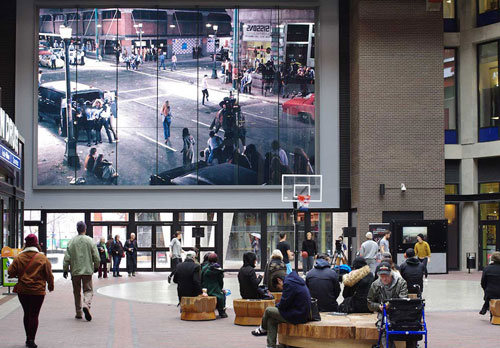Documentary Practices:
Between Verification & Reality Creation Instructor: Manuel Correa Date & Time: January 28, February 4, 11, 18. 09:00-11:30 ET

DESCRIPTION: We all carry cameras with us all the time, everywhere. This is why the way the narration of global events has changed radically in the last ten years. The documentation of events such as social outbursts in Colombia, Chile, Argentina, and Hong Kong, show us the impact that cell phone video and photography have had on documentary practice. By finding a source of dissemination on the Internet, these audiovisual images bypass traditional channels of journalism and analysis. Devoid of the practitioners’ traditional agency, these videos complicate the notion of source-truth, and their analysis and media framings play a vital role in worldmaking and the consolidation of political narratives. Documentary filmmaking has always confronted the notion of truth, by complicating and expanding it, but more often than not, by accepting it as an anachronic binarism of truth vs. false. This Seminar will engage with the investigative potentials and shortcomings of audiovisual data. We will dissect different types of contemporary practices and their abilities to produce and affect the future through documentary language.
Session 1, Truth versus False: We will explore the notion of source truth and verification and explore contemporary ideas looking past George Boole’s classical logic as exemplified in the binary values of truth vs. false. We will problematize the notion of “camera as a witness,” fundamental to the observational documentary’s positing of seeing as truth.
Session 2, Truth and Testimony: We will explore different interview and testimonial techniques. We will discuss witnessing and memory as media for verification. Recollections of events are often encoded in the sensory perception of space. We will consider the role of false memories, lapses, and witness tampering in the process of truth-making in documentary practices. We will discuss examples of spatial techniques developed by researchers to help the witness remember past events.
Session 3, Archival Truths: We will consider the evidentiary nature of archives and discuss their potential and shortcomings when researching towards documentary practices.
Session 4, Embracing Fiction as the Limit of Truth: In the last Session, we will discuss the way that powerful players like governments, corporations, and media are creating public truths at blazing speed. The spread of disinformation forces the reality-based community to challenge the value of truth and verification by finding a place for fiction in truthtelling and worldmaking.
IMAGE: Stan Douglas, Abbott & Cordova, 7 August 1971, 2008.
To see The New Centre Refund Policy CLICK HERE.
To see The New Centre Refund Policy CLICK HERE.